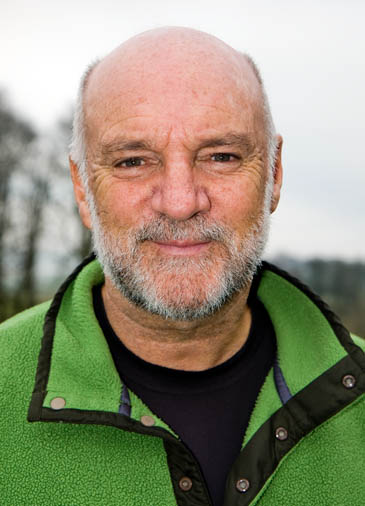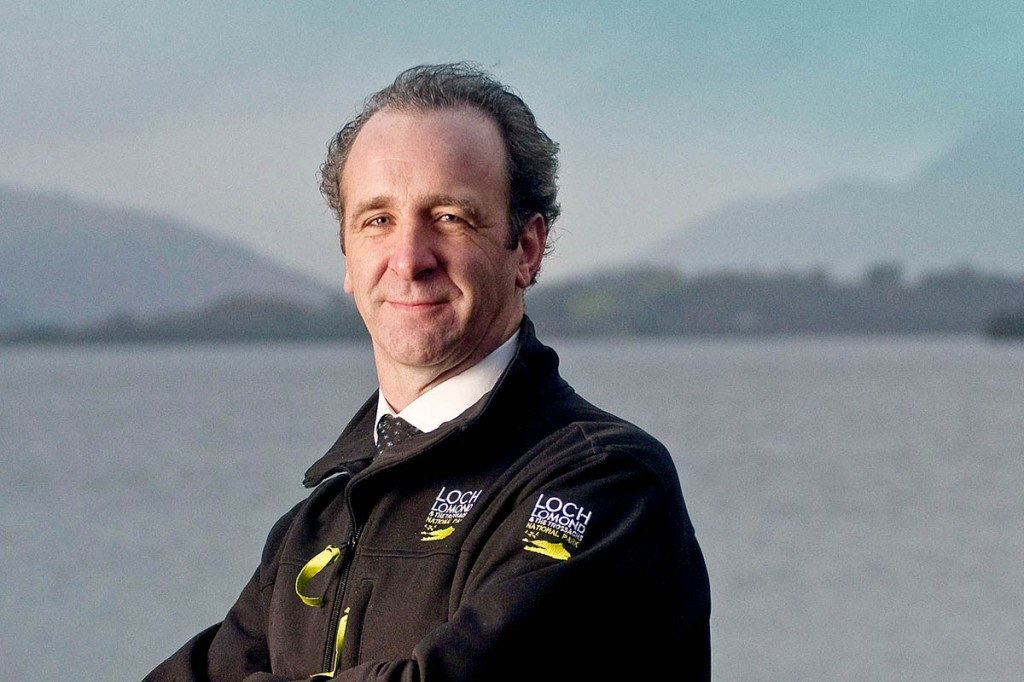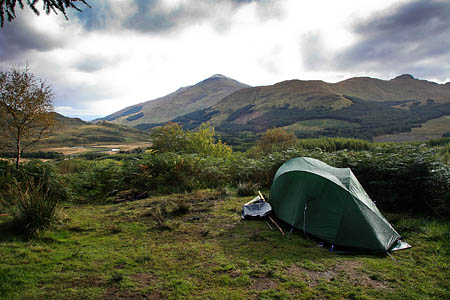A war of words has broken out between a national park boss and outdoor commentators over plans to extend camping bans along the shores of several lochs.
A public consultation ends at midnight on Monday, and the Loch Lomond & the Trossachs authority’s new chief executive has accused opponents of ‘misleading statements’.
The park authority introduced a ban on wild camping along a stretch of the eastern shore of Loch Lomond and 17km (10-miles) of the West Highland Way in 2011 in response to anti-social behaviour and vandalism in the area.
It now wants to extend the ban to the western shore of the loch and to most roadside loch shores in the national park, Scotland’s first, including Lochearnhead, Balquhidder, Aberfoyle, Kilmahog and Strathyre.
But many see the proposed introduction of further bylaws as being against the ethos of Scotland’s right-to-roam law the Land Reform (Scotland) Act, which gives the public the right to camp responsibly in the Scottish countryside.
Kevin Findlater, the former high-ranking officer who was responsible for policing Loch Lomond at the time of the introduction of the original bylaws, and outdoors writer, broadcaster and commentator Cameron McNeish have both come out strongly against the plans.
This brought a stinging response from Gordon Watson, chief executive of Loch Lomond & the Trossachs National Park Authority, who maintains the plans are necessary to protect the park’s environment.
Cameron McNeish said: “I have every sympathy for the problems the park board is facing but I have even more sympathy for the people who live in the Loch Lomond and Trossachs area and have had to put up with loutish and often criminal behaviour from certain visitors for generations.
“Problems on bank holidays and at various other times of the year are not new in the Loch Lomond area and I have often witnessed it at first hand. It is deplorable that various individuals think they can use the shores of the area’s lochs and disturb others with their weekend piss-ups and even more deplorable that these people should threaten, in any way, the local community.
“Indeed I reluctantly supported the original bylaws on the basis that east Loch Lomond was a ’special case’ and on the promise that the bylaws would be a temporary solution.
“However, there are many indications that the east Loch Lomond bylaws have had the effect of displacing the offenders to other areas of the park and even beyond. There have been press reports of similar problems of litter and vandalism in Glen Etive and near Braemar in Aberdeenshire. And that means that solutions are necessary for the whole of Scotland, and not just in the national park.
“That’s why I’m supporting the Ramblers and the MCofS and calling for the national park to abandon, or at least shelf [sic], their bylaw proposals and join in nationwide talks on the subject of wild camping and irresponsible behaviour in the countryside.
“These discussions should include local community groups, Police Scotland, the outdoor user groups and the Scottish Government.
“If not then we could have the ludicrous situation of a backpacker being criminalised in the national park for doing what he can legally do in other areas of Scotland, and that’s just madness.”
Mr Findlater, who retired as chief inspector in 2013, said in his submission under the consultation that the proposed bylaws are badly crafted and wholly wrong.
He said: “The bylaws themselves are wholly unnecessary, draconian and drive a coach and horses through the right to roam so valued in all of Scotland.
“To make matters worse, despite assurances given to the contrary, the new proposals grossly and unfairly extend the scope and geography of the bylaws in a way that must raise questions as to what are the real motivations.”
But Gordon Watson said campaigners such as Mr McNeish had accepted Mr Findlater’s statement to the authority without question.
He said: “As chief inspector responsible for policing in the park when the bylaws at east Loch Lomond were introduced, Kevin Findlater supported their introduction and furthermore produced the figure of 81.5 per cent, which featured in Central Police Scotland’s Operation Ironworks evaluation report 2009-2012.
“The assertion that the bylaws haven’t worked and that the figure of 81 per cent reduction in antisocial behaviour crimes is inaccurate, is based on – now retired – Kevin Findlater’s personal response to the consultation which has been taken at face value.”
Mr Watson, who recently took over from Fiona Logan as the park’s chief executive, said: “We understand that there is strong feeling on the part of outdoors enthusiasts about their ‘right to roam’.
“However, some of the arguments presented seem intent on downplaying the atrocious damage that is being caused to the environment of a national park, as well as the impact on residents and visitors. Enforcement of existing law already happens with significant resources going into Operation Ironworks police enforcement, but this is not deterring the problems as bylaws have done on east Loch Lomond.
“The many residents and visitors affected by these problems are impatient for action and rightly expect us to come up with effective solutions.
“The National Park (Scotland) Act 2000 gives us bylaw-making powers for a reason: we are expected to protect the environment from damaging overuse and abuse.
“The package of measures we are proposing combines investing in more informal low cost camping facilities, continuing education initiatives as well as introducing controls on the amount of camping.
“The Your Park proposals which are out to public consultation currently build on the successful measures introduced at east Loch Lomond and, again, have been the subject of widespread, informal consultation with local partners, national bodies, outdoor recreation organisations, public and private landowners, local communities and businesses.”
Ramblers Scotland and the Mountaineering Council of Scotland both expressed reservations about the plans. Dave Morris, former director of Ramblers Scotland, told The Herald newspaper: “The park authority needs to abandon its bylaw proposals immediately and sit down with Police Scotland, outdoor organisations and other experts and work out sensible solutions.”
But Mr Watson said: “Police Scotland is generally supportive of the introduction of a bylaw replicating the purpose and spirit of the existing east Loch Lomond byelaw in other parts of the national park where visitor pressure, crime and antisocial behaviour is affecting safety, quality of life and the environment. This support extends only when implemented as part of a suite of wider measures such as those introduced from 2011 in east Loch Lomond.
“Far from being cynical or shameful, it’s our daily duty, and honour, to take care of this special place, and the proposals we’ve made in Your Park, have at their heart the best interests of the Park and the people who cherish and enjoy it.”
Members of the public have until midnight on Monday to make their views known. These can be submitted on the Your Park website.




john Pickering
12 January 2015If these proposals go through the islands on the loch will be targeted next. The majority of people respect the environment but they pay the biggest price when the fun police get involved.the best way to enjoy the loch is to live in it and camping is the only way we can do this.